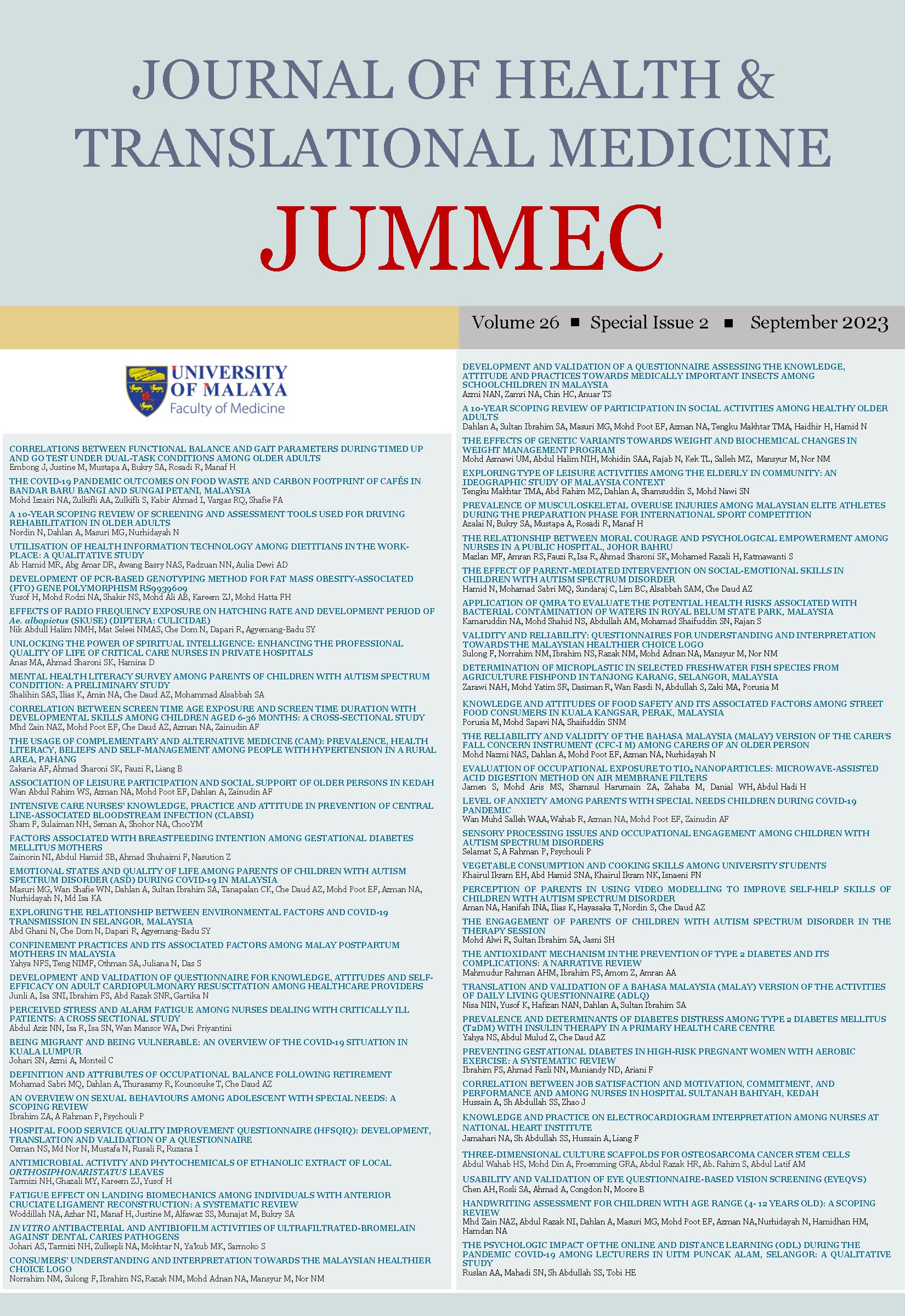SENSORY PROCESSING ISSUES AND OCCUPATIONAL ENGAGEMENT AMONG CHILDREN WITH AUTISM SPECTRUM DISORDERS
Received 2023-07-07; Accepted 2023-09-26; Published 2023-09-26
DOI:
https://doi.org/10.22452/jummec.sp2023no2.41Abstract
Children with Autism Spectrum Disorder (ASD) experience sensory processing issues, affecting their daily behaviour and functional performance. Occupational engagement is viewed as activities a person participates in which involve occupational performance and environmental factors. This study aims to identify impaired sensory processing and occupational engagement, the relationship with demographic profile, and the relationship between impaired sensory processing and occupational engagement among children with ASD. A total of 169 children with ASD from a centre in Sentul were recruited. School Companion Sensory Profile and the Short Child Occupational Profile (SCOPE) were used as the outcome measurements in this study. The research finding yields those children with ASD appear to experience some degree of processing issues in “avoiding” sensory patterns and appear to have significant challenges in “communication and interaction skills” in their occupational engagement. Sensory processing issues and activity engagement are also found to be a minimal to moderate relationship with the demographic profiles of the children. The study also concludes that sensory processing and occupational engagement among children with ASD are interrelated. The correlation coefficients range from r = -0.20 to r = -0.36 indicating a fair to moderate correlation between sensory processing and occupational engagement. These sensory processing issues significantly impact children’s life, which can be seen through their level of engagement in daily life activities. Information on sensory processing issues and occupational engagement allows one to identify successful intervention strategies.
Downloads
Downloads
Published
Issue
Section
License
All authors agree that the article, if editorially accepted for publication, shall be licensed under the Creative Commons Attribution License 4.0 to allow others to freely access, copy and use research provided the author is correctly attributed, unless otherwise stated. All articles are available online without charge or other barriers to access. However, anyone wishing to reproduce large quantities of an article (250+) should inform the publisher. Any opinion expressed in the articles are those of the authors and do not reflect that of the University of Malaya, 50603 Kuala Lumpur, Malaysia.


